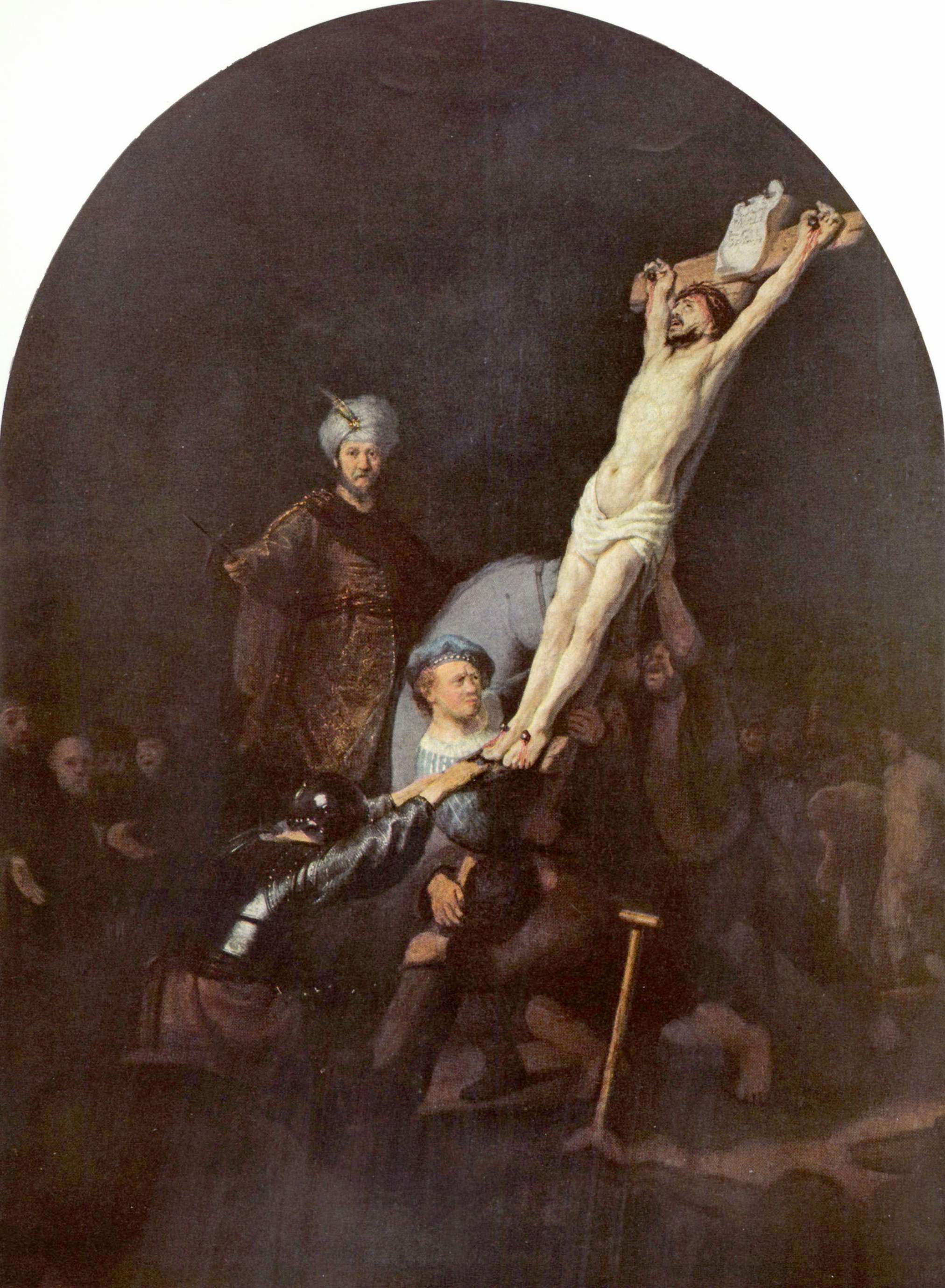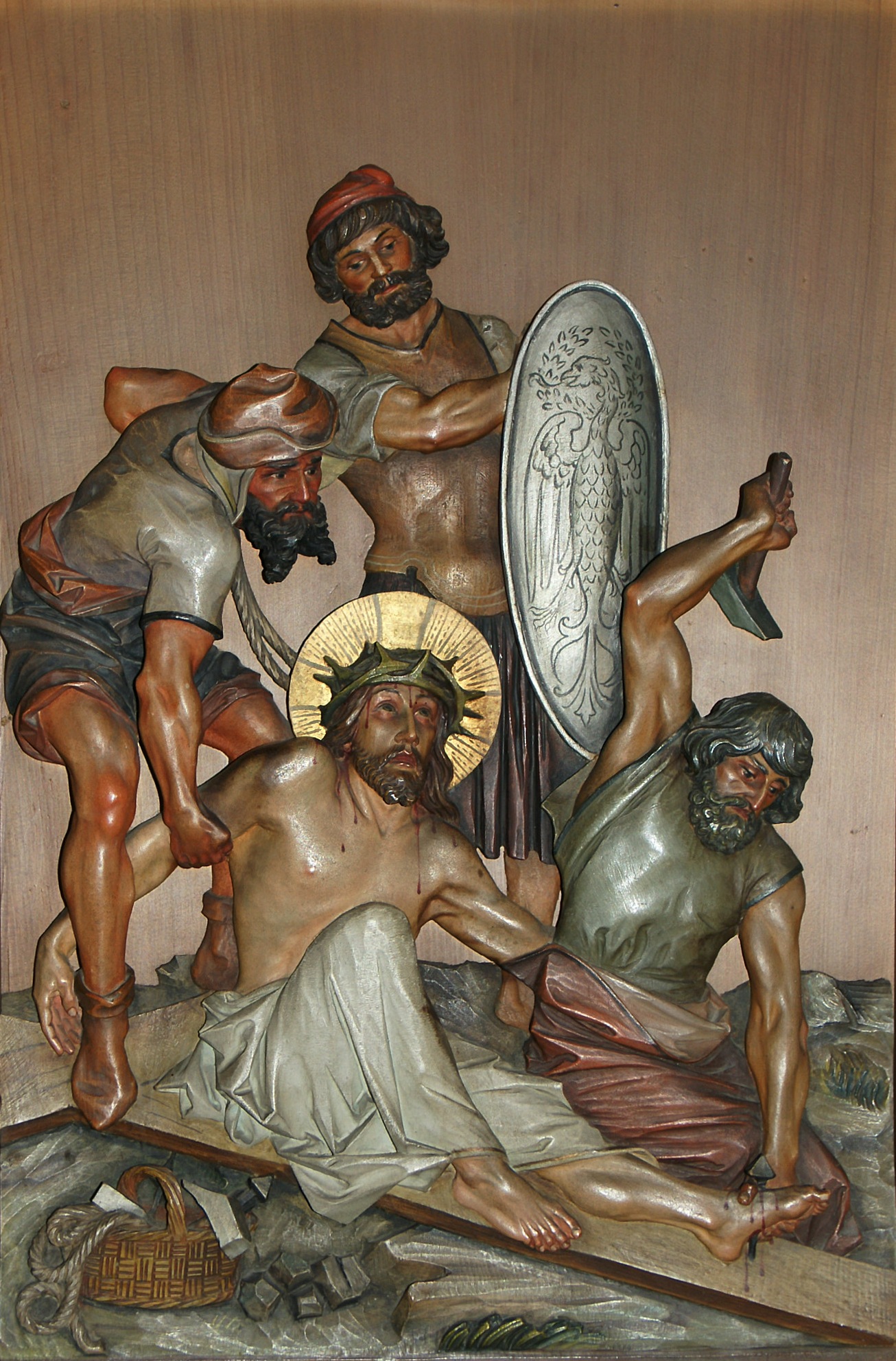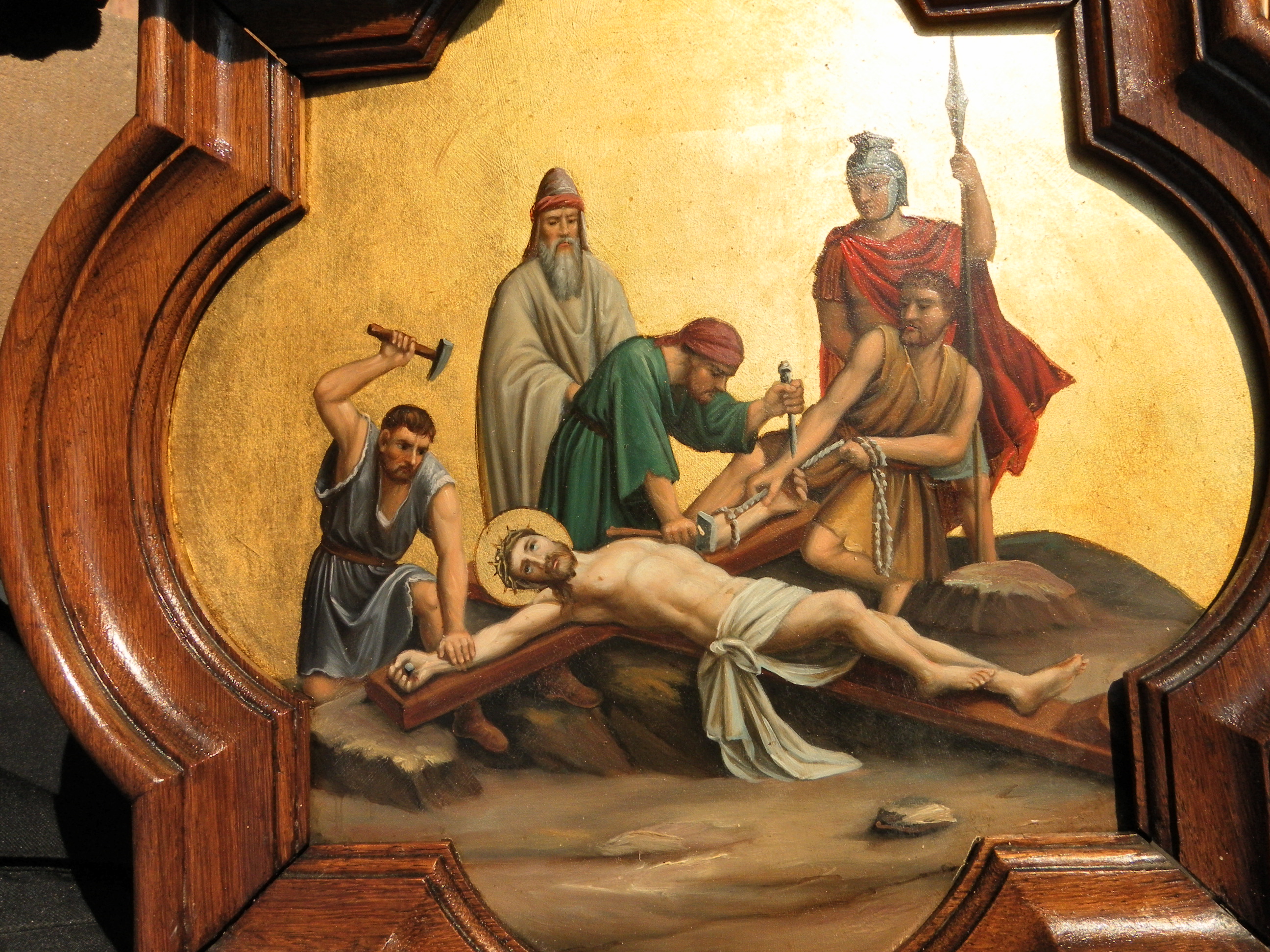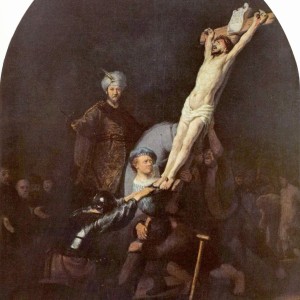V. Adoramus te, Christe, et benedicimus tibi. [We adore Thee, O Christ, and we praise Thee.]
R. Quia per sanctam crucem tuam redemisti mundum. [Because by Thy holy Cross Thou hast redeemed the world.]
From the Gospel according to Mark. 15:25-27
And it was the third hour, when they crucified him. And the inscription of the charge against him read: “The King of the Jews.” And with him they crucified two robbers one on his right and one on his left.
 |
| Rembrandt, The Raising of the Cross (1633) |
“They have pierced my hands and feet, I can count all my bones” (Ps 22:16-17). “I can count…”: how prophetic were these words! And yet we know that this body is a ransom. The whole of this body, its hands, its feet, its every bone, is a priceless ransom. The Whole Man is in a state of utmost tension: his bones, his muscles, his nerves, his every organ and every cell, is stretched and strained to breaking-point. “I, when I am lifted up from the earth, will draw all men to myself” (Jn 12:32).
These words express the full reality of the crucifixion. And part of this reality is the terrible tension penetrating Christ’s hands, feet and every bone: driving its way into the entire body which, nailed like a mere thing to the beams of the Cross, is about to be utterly annihilated in the convulsive agony of death. And the whole of the world which Jesus wills to draw to himself enters into the reality of the Cross. The world is dependent on the gravitational pull of this body, which inertia now causes to sink lower and lower.
The Passion of Christ Crucified lies precisely in this gravitational pull.
“You are from below, I am from above” (Jn 8:23). From the Cross he says: “Father, forgive them, for they know not what they do” (Lk 23:34).
Christ, crucified by hatred, made by love a sign of reconciliation and peace. R. Christe, eleison.
Christ, by your blood shed on the Cross,you have ransomed man, the world, the universe. R. Christe, eleison .
From the Gospel according to Matthew 27:37-42:
And over his head they put the charge against him, which read, “This is Jesus the King of the Jews”. Then two robbers were crucified with him, one on the right hand and one on the left. And those who passed by derided him, wagging their heads and saying, “You who would destroy the temple and build it in three days, save yourself! If you are the Son of God, come down from the Cross”. So also the chief priests with the scribes and elders mocked him, saying, “He saved others; he cannot save himself. He is the King of Israel; let him come down now from the Cross and we will believe in him”.
 |
| Eleventh Station, St. Othmar, Gaißau |
Jesus is nailed to the Cross. The shroud of Turin gives us an idea of the unbelievable cruelty of this procedure. Jesus does not drink the numbing gall offered to him: he deliberately takes upon himself all the pain of the Crucifixion. His whole body is racked; the words of the Psalm have come to pass: “But I am a worm and no man, scorned by men, rejected by the people” (Ps 22:7). “As one from whom men hide their faces, he was despised… surely he has borne our grief and carried our sorrows” (Is 53:3f.). Let us halt before this image of pain, before the suffering Son of God. Let us look upon him at times of presumptuousness and pleasure, in order to learn to respect limits and to see the superficiality of all merely material goods. Let us look upon him at times of trial and tribulation, and realize that it is then that we are closest to God. Let us try to see his face in the people we might look down upon. As we stand before the condemned Lord, who did not use his power to come down from the Cross, but endured its suffering to the end, another thought comes to mind. Ignatius of Antioch, a prisoner in chains for his faith in the Lord, praised the Christians of Smyrna for their invincible faith: he says that they were, so to speak, nailed with flesh and blood to the Cross of the Lord Jesus Christ (1:1). Let us nail ourselves to him, resisting the temptation to stand apart, or to join others in mocking him.
Lord Jesus Christ, you let yourself be nailed to the Cross, accepting the terrible cruelty of this suffering, the destruction of your body and your dignity. You allowed yourself to be nailed fast; you did not try to escape or to lessen your suffering. May we never flee from what we are called to do. Help us to remain faithful to you. Help us to unmask the false freedom which would distance us from you. Help us to accept your “binding” freedom, and, “bound” fast to you, to discover true freedom.
 |
| Eleventh Station of the Cross, Pfettisheim Saint Symphorian |
Pater noster, …
Sancta mater, istud agas,
Crucifixi fige plagas
cordi meo valide.
Hallowed be Thy Name
Thy Kingdom come, Thy will be done
on Earth as it is in Heaven.
Give us this day our Daily Bread,
and forgive us our trespasses,
as we forgive those who trespass against us,
and lead us not into temptation,
but deliver us from evil.
Holy Mother! pierce me through,
in my heart each wound renew
of my Savior crucified.
